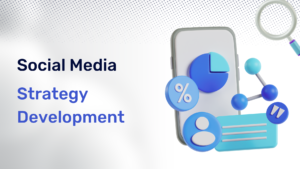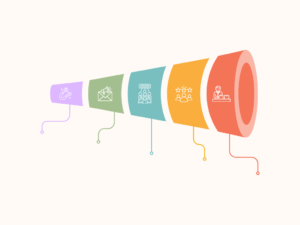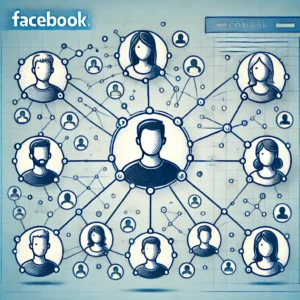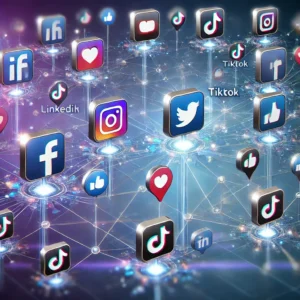Use Social Media Without Falling into Depression

In today’s digitally connected world, social media has become an integral part of our lives. It’s a powerful tool that allows us to connect with friends and family, stay updated on current events, and even advance our careers. However, the same platforms that keep us connected can also contribute to feelings of depression and anxiety. Balancing the benefits and the potential pitfalls of social media use is crucial for maintaining mental health. Here, we will explore practical strategies to use social media without falling into depression, ensuring a healthier online experience.
Understanding the Link Between Social Media and Depression
Social media platforms like Facebook, Instagram, Twitter, and TikTok have revolutionized how we communicate and share information. Despite these benefits, studies have shown a correlation between excessive social media use and mental health issues, including depression and anxiety. This connection often stems from several factors:
Comparison Culture: Social media often showcases the highlight reels of people’s lives. Constant exposure to curated, often idealized content can lead to unhealthy comparisons and feelings of inadequacy.
Cyberbullying and Negative Interactions: Online harassment and negative interactions can significantly impact mental well-being, leading to stress, anxiety, and depression.
Sleep Disruption: Excessive social media use, especially before bed, can interfere with sleep patterns, contributing to mood disorders.
Fear of Missing Out (FOMO): Constant updates and notifications can create a sense of urgency and anxiety about missing out on experiences, leading to stress and dissatisfaction.
Practical Strategies for Healthy Social Media Use
To harness the positive aspects of social media while minimizing its negative impact, consider implementing the following strategies:
Set Time Limits: Use built-in tools or third-party apps to monitor and limit the time spent on social media. Setting specific time blocks for social media use can help prevent excessive scrolling and reduce exposure to potentially harmful content.
Curate Your Feed: Be selective about the accounts you follow. Unfollow or mute accounts that promote negative emotions or comparison. Instead, follow pages and individuals that inspire, educate, or make you feel good about yourself.
Engage Positively: Focus on positive interactions. Engage with content that uplifts you and participate in online communities that share your interests and values. Positive engagement can help foster a sense of connection and support.
Take Regular Breaks: Periodically disconnect from social media to recharge. Designate certain days or times as social media-free to focus on offline activities and relationships.
Practice Mindfulness: Be mindful of your emotions while using social media. If you notice feelings of stress or sadness, take a step back and evaluate the cause. Practicing mindfulness can help you remain present and aware of your emotional responses.
Limit Notifications: Turn off non-essential notifications to reduce distractions and the constant urge to check your phone. This can help decrease feelings of anxiety and FOMO.
Focus on Real-Life Connections: Invest time in face-to-face interactions with friends and family. Building strong, real-life relationships can provide emotional support and reduce the reliance on virtual connections.
Seek Professional Help: If social media use significantly impacts your mental health, consider seeking help from a mental health professional. Therapists can provide strategies to manage anxiety and depression linked to social media use.
Building a Positive Social Media Environment
Creating a positive online environment is not just about limiting negative influences but also about actively fostering positivity. Here are some ways to build a supportive and uplifting social media experience:
Share Positive Content: Post content that inspires and uplifts others. Share your achievements, gratitude, and positive experiences to contribute to a supportive online community.
Support Others: Engage with and support your friends and followers by liking, commenting, and sharing their positive content. Offering words of encouragement and support can strengthen your online relationships.
Educate Yourself and Others: Use social media to educate yourself and others about mental health. Share articles, resources, and personal experiences that can help raise awareness and reduce the stigma around mental health issues.
Join Positive Communities: Participate in groups and communities that focus on positivity, mental health, and personal growth. These spaces can provide support and resources to help you navigate challenges.
Recognizing Signs of Social Media-Induced Depression
Awareness is key to preventing social media-induced depression. Here are some signs that your social media use might be affecting your mental health:
- Increased Feelings of Loneliness: Despite being connected, you feel more isolated and lonely.
- Constant Comparison: Regularly comparing yourself to others and feeling inadequate.
- Decreased Self-Esteem: Feeling worse about yourself after spending time on social media.
- Mood Swings: Experiencing mood swings, anxiety, or sadness linked to social media interactions.
- Obsessive Checking: Feeling the need to constantly check your social media accounts.
If you notice these signs, it may be time to reevaluate your social media habits and implement the strategies discussed above.
Conclusion
Social media is a double-edged sword; it has the potential to connect and inspire us, but it can also contribute to feelings of depression and anxiety. By setting boundaries, curating your feed, engaging positively, and taking regular breaks, you can create a healthier relationship with social media. Remember, it’s essential to prioritize real-life connections and seek professional help if needed. By taking proactive steps, you can enjoy the benefits of social media without falling into depression, ensuring a balanced and fulfilling online experience.
By being mindful of your social media use and actively working towards a positive online environment, you can protect your mental health and make the most of the digital world. Take control of your social media experience and turn it into a source of inspiration, support, and connection.
In conclusion, using social media mindfully and implementing the strategies mentioned can help you maintain a healthy balance, preventing negative impacts on your mental health. Remember, it’s all about how you choose to engage with these platforms that determines their effect on your well-being. By taking charge of your social media habits, you can enjoy a fulfilling and positive online experience.

Ayesh Jayawardana

Social Media Strategy Development

Social Media Funnel Marketing

How Facebook Suggests Friends

How Social Media Algorithms Work

The Future of Social Media: What to Expect in 2025
